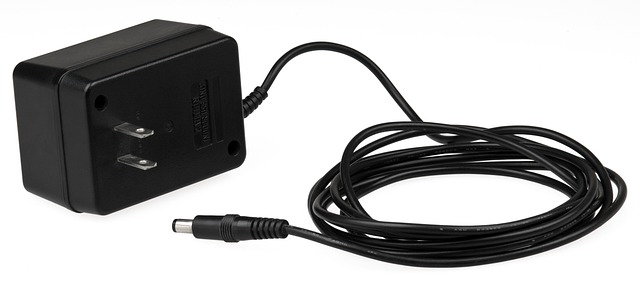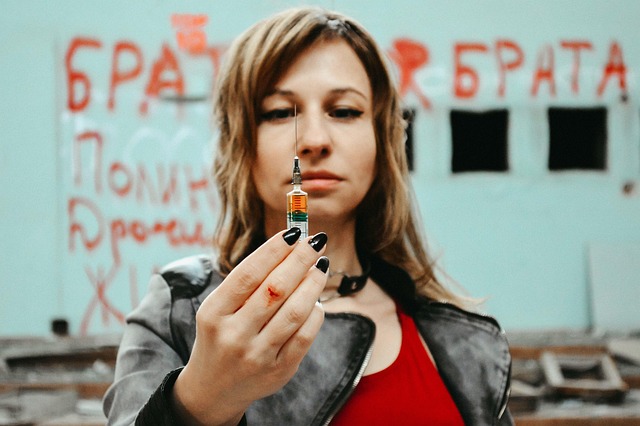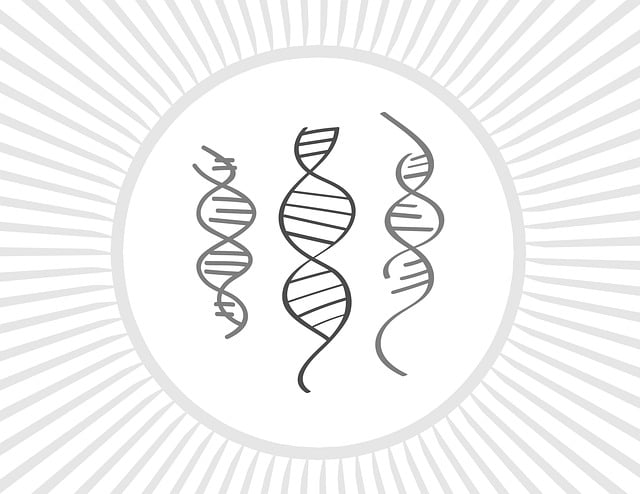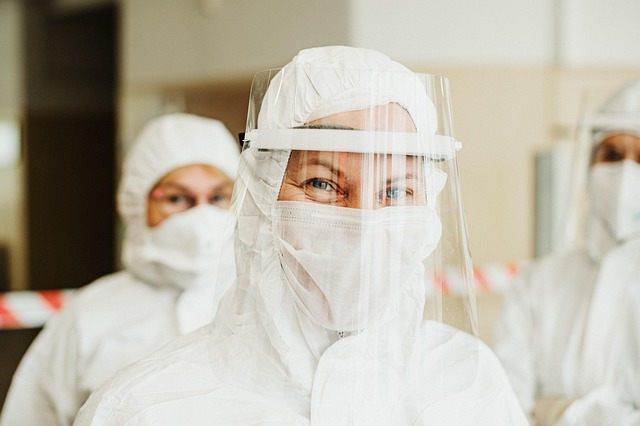Warts are common skin growths caused by HPV. Over-the-counter and home remedies exist, but persistent or painful warts may require professional care from a reliable wart removal clinic. Natural treatments like apple cider vinegar, garlic, and essential oils offer alternatives, but effectiveness varies. Consulting healthcare professionals or visiting reliable clinics ensures expert guidance for tailored, safe solutions, especially for stubborn cases.
Tired of unsightly warts? Discover top-rated, at-home remedies for effective wart removal. This comprehensive guide explores various natural treatments, from kitchen ingredients to essential oils, empowering you with knowledge to combat these skin growths safely. Learn about different wart types and understand their causes. Find out which home applications work best and when to seek professional help from a reliable wart removal clinic.
- Understanding Warts: Causes and Types
- Natural Treatments: Effective Home Remedies
- Common Kitchen Ingredients for Wart Removal
- Essential Oils and Their Healing Properties
- Topical Applications: Salves and Creams
- Precautions and When to Seek Professional Help
Understanding Warts: Causes and Types

Warts are common skin growths caused by various types of human papillomaviruses (HPV). They can appear anywhere on the body but most frequently show up on the hands, feet, and face. While they are generally harmless, warts can be unsightly and uncomfortable. There are numerous types of warts, including common warts, plantar warts (which often develop on the soles of the feet), flat warts, and filiform warts, each with distinct characteristics and causes.
Understanding the cause is crucial when considering wart removal options. Some people may opt for over-the-counter treatments or try at-home remedies like duct tape or apple cider vinegar. For more persistent or painful cases, a reliable wart removal clinic, such as those in Birmingham or Bolton, might offer professional solutions like cryotherapy (freezing), salicylic acid, or surgical excision. Quick wart elimination methods are available, but it’s essential to consult with experts to determine the best approach for your specific type of wart.
Natural Treatments: Effective Home Remedies

Natural Treatments offer effective home remedies for warts that can be easily incorporated into your daily routine. One popular option is applying apple cider vinegar, known for its acidic properties, which help dissolve the outer layer of warts over time. Another simple yet powerful method involves using duct tape, creating a kind of ‘wart_removal_for_beginners’ strategy where the tape suffocates the wart and aids in its eventual disappearance.
For those seeking more specialized solutions, visiting a reliable wart removal clinic like Gloucester wart clinic can provide permanent_wart_solutions_nearby. While these methods may not be as DIY-friendly, they offer durable results, ensuring warts don’t return. A wart_treatment_cost_guide is readily available to help individuals make informed decisions, considering both at-home remedies and professional treatments.
Common Kitchen Ingredients for Wart Removal

Many people turn to home remedies for wart removal due to their accessibility and perceived safety. Common kitchen ingredients can offer effective solutions for getting rid of warts, often at a fraction of the cost compared to visiting a reliable wart removal clinic, such as those in Sheffield, Liverpool, or Bolton.
For instance, apple cider vinegar has gained popularity for its potential to dissolve the protein in warts. Soaking bandages in ACV and applying them to affected areas overnight can lead to the gradual disappearance of warts. Another common kitchen item, garlic, contains allicin, a compound known for its antiviral properties. Crushing or slicing raw garlic and applying it directly to warts can provide relief from discomfort and potentially speed up healing. Additionally, tea tree oil, known for its antimicrobial properties, can be diluted and applied topically to reduce the appearance of warts over time.
Essential Oils and Their Healing Properties

Essential oils have long been recognised for their healing properties and many people turn to them as a natural alternative to conventional medical treatments, including visits to a reliable wart removal clinic like Manchester Wart Clinic or private wart removal services in Wolverhampton, West Midlands. Oils such as tea tree oil, known for its antimicrobial and antiviral properties, can help fight the viral infection that causes warts. Lavender oil is another popular choice, offering anti-inflammatory and analgesic benefits to soothe the skin and potentially speed up the healing process.
While over-the-counter wart treatments reviewed by experts may include essential oils, their effectiveness can vary from person to person. Application methods, such as direct topical application or dilution with a carrier oil, also play a role in their success. Some oils are best used topically, while others may require internal consumption for optimal results. Consulting with a healthcare professional or visiting a private wart removal clinic can help determine the most suitable essential oil and treatment approach for your specific case.
Topical Applications: Salves and Creams

When it comes to topical applications for wart removal, salves and creams are popular choices. Many over-the-counter options are available at drugstores, offering relief for minor warts. These products often contain chemicals like salicylic acid, which helps soften and dissolve the outer layer of the wart, allowing for its gradual disappearance. While effective for some, these treatments might not work for everyone, especially with more stubborn or persistent warts.
For those seeking faster results or dealing with particularly resistant warts, a visit to a reliable wart removal clinic could be beneficial. Professional dermatologists, such as those found at the best clinics in Gloucester, offer a range of effective home wart removal remedies, including stronger medications and specialized treatments tailored to individual cases. They can also provide guidance on proper application techniques, ensuring wart_removals_before_and_after improvements are visible over time.
Precautions and When to Seek Professional Help

When attempting home remedies for warts, it’s crucial to exercise caution and consider a few key points. First and foremost, consult with a healthcare professional or reliable wart removal clinic if you have concerns about your specific case or if warts persist despite treatment. Some conditions might require expert attention, especially in sensitive areas like the face or near the eyes. Moreover, be wary of harsh chemicals or methods that can cause skin irritation or damage; opt for gentle, natural alternatives instead.
For instance, private wart removal services in cities like Bradford, Preston (Lancashire), or Epsom offer safe and effective solutions without the risks associated with DIY methods. These clinics often employ specialized treatments tailored to individual needs. Remember, while home remedies can be beneficial, they might not suit every type of wart or skin condition. Seeking professional advice is advisable, especially for persistent or complex cases, ensuring a thorough and safe removal process.
When it comes to getting rid of warts, there are numerous home remedies available that offer effective, natural solutions. From using common kitchen ingredients like apple cider vinegar and garlic to essential oils with healing properties, these options provide a safe and potentially cost-effective alternative to a reliable wart removal clinic. While these methods can be tried at home, it’s important to remember that warts can be stubborn, and if they persist or cause discomfort, seeking professional medical advice is always recommended for the most suitable treatment plan.
